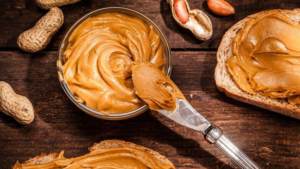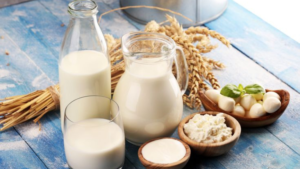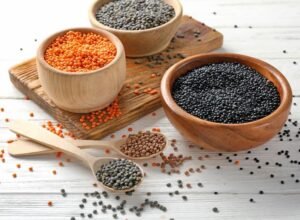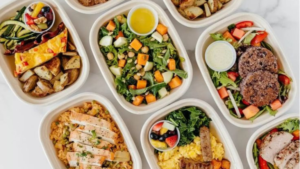If you’re looking to gain weight in a healthy manner, focus on consuming nutrient-dense foods that are high in calories, healthy fats, proteins, and complex carbohydrates. Here’s a list of foods that can help you in your weight gain journey
1 . Nut Butters

Peanut butter, almond butter, or cashew butter are excellent sources of healthy fats and proteins.
2 . Avocado
Rich in healthy fats and packed with nutrients, avocados are great for adding calories to your diet.
3 . Whole Milk

Full-fat dairy products like whole milk provide a good balance of protein, fats, and carbohydrates.
4 . Cheese
Cheese is calorie-dense and rich in protein and fats. Opt for varieties like cheddar, mozzarella, or Swiss.
5 . Nuts and Seeds
Almonds, walnuts, pecans, and seeds like chia, flax, and pumpkin seeds are high in calories and healthy fats.
Dried Fruits: Dates, raisins, apricots, and prunes are concentrated sources of calories and nutrients.
Whole Grains: Incorporate whole grains like oats, quinoa, brown rice, and whole wheat bread into your diet for complex carbohydrates.
Lean Proteins: Include sources like chicken breast, turkey, lean beef, and fish for muscle growth and repair.
Healthy Oils: Use olive oil, coconut oil, or avocado oil in cooking or drizzle over salads for extra calories and healthy fats.

Smoothies and Shakes: Blend fruits, vegetables, nut butters, yogurt, and protein powder to create calorie-dense smoothies and shakes.
Remember to balance your calorie intake with regular exercise to ensure that the gained weight is primarily muscle mass rather than fat. Also, consult with a nutritionist or healthcare professional for personalized advice tailored to your specific needs and health goals.
6 . Frequency of Meals
Aim to eat frequent, balanced meals throughout the day, including snacks if needed. This can help increase your overall calorie intake.
7 . Caloric Surplus
To gain weight, you’ll need to consume more calories than you burn. Calculate your daily calorie needs and aim for a surplus of around 300-500 calories per day for gradual weight gain.
8 . Strength Training
Incorporate resistance training exercises into your fitness routine to build muscle mass. This can help ensure that the weight you gain is muscle rather than fat.
9 . Quality Protein

Focus on high-quality protein sources such as lean meats, poultry, fish, eggs, dairy, and plant-based options like legumes and tofu. Protein is essential for muscle repair and growth.
10 . Healthy Fats

Include sources of healthy fats in your diet such as avocados, nuts, seeds, and olive oil. These fats provide concentrated calories and support overall health.
11 . Carbohydrates
Choose complex carbohydrates like whole grains, fruits, vegetables, and legumes over simple sugars and refined grains. These provide sustained energy and essential nutrients.
12 . Hydration
Stay well-hydrated by drinking water throughout the day. Dehydration can negatively impact appetite and overall health.
13 . Nutrient Density
For nutrient-dense foods that provide a wide range of vitamins, minerals, and antioxidants to support overall health and well-being.
14 . Meal Planning

Plan your meals and snacks in advance to ensure you’re meeting your calorie and nutrient goals consistently.
15 . Monitor Progress
Keep track of your weight gain progress and adjust your diet and exercise routine as needed. Remember, healthy weight gain is gradual and sustainable.
By incorporating these details into your approach, you can effectively and healthily achieve your weight gain goals.
